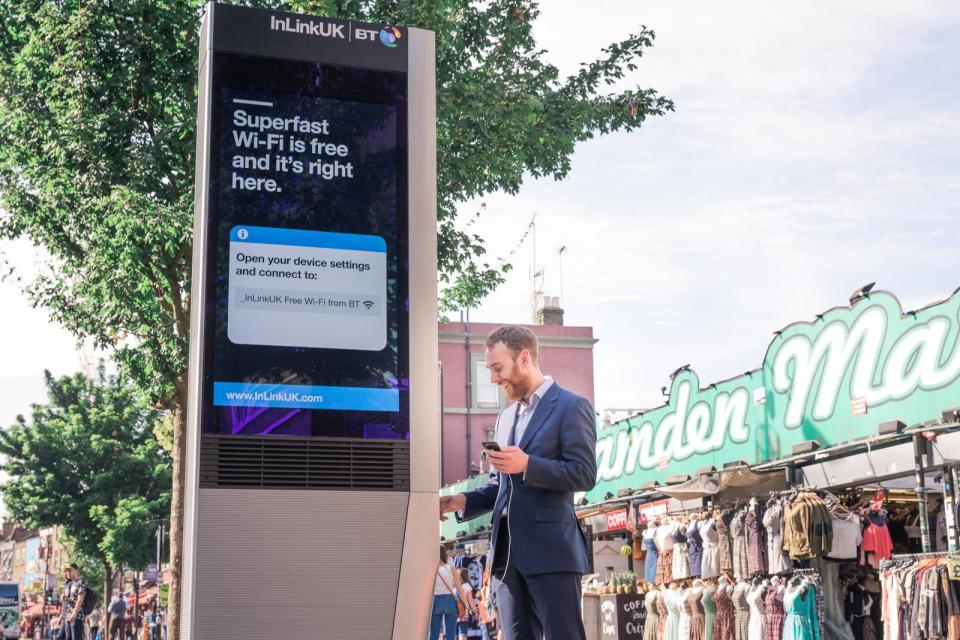An algorithm is attempting to block drug deals at UK WiFi kiosks
It's an attempt to curb "antisocial" behavior.
The InLink kiosks installed throughout the UK were meant to replace payphones and provide free calls, ultra-fast WiFi and phone charging. But it wasn't long before they became a hotbed for drug dealing. Rather than do away with the free phone service, British telecom company BT and InLinkUK developed an algorithm to automatically block and disable "antisocial" calls.
The algorithm uses the frequency of attempted and connected calls, their length and distribution and insights provided by police to identify suspicious patterns and phone numbers. It can then automatically block those numbers. It's already been deployed across all of the InLinkUK kiosks.
Before the system was in place, drug dealers reportedly arranged 20,000 sales from just five kiosks in a 15-week period. A separate kiosk was used to facilitate £1.28 million in drug sales (about $1.68 million). But BT and InLinkUK say less than half a percent of the total calls across the InLink network are associated with antisocial behavior. And the company believes its new algorithm has already solved the problem.
InLinkUK's parent company, Link, operates similar kiosks in New York City. While those have become incredibly popular, they've also had their fair share of issues -- from pranksters making them play ice cream truck tunes on hot summer days to people commandeering the web browsers and using them to watch porn. Now that InLinkUK has the technology to monitor and block suspicious calls, we have to wonder if Link will deploy similar algorithms on other networks.
As part of our commitment to ensure every #InLink makes a positive contribution to its local community, we are pleased to announce new anti-social call blocking technology developed with our partners. #SmartCities #TechForGood pic.twitter.com/2m4vSyG0TZ
— InLinkUK (@InLinkUK) April 11, 2019


